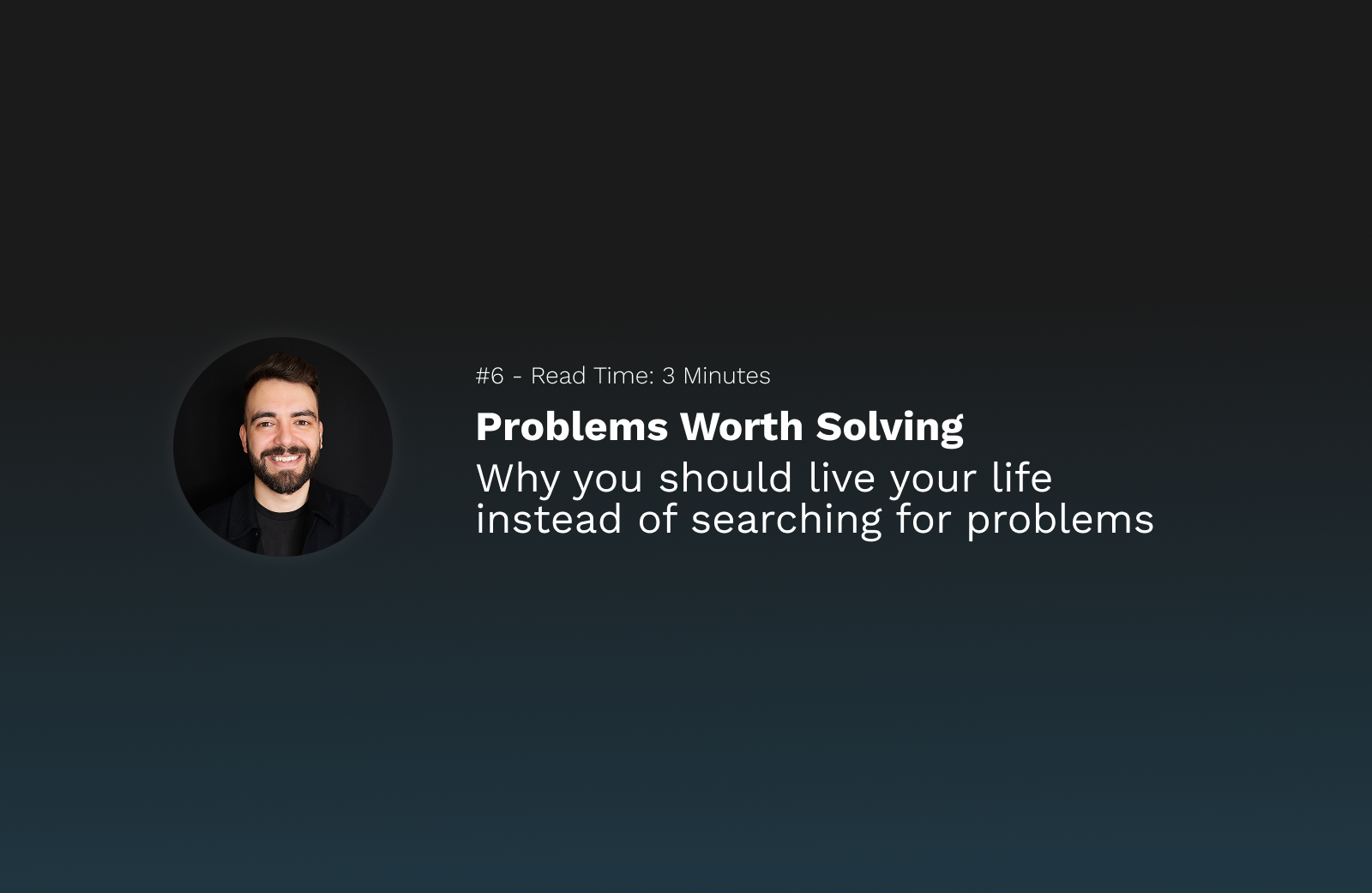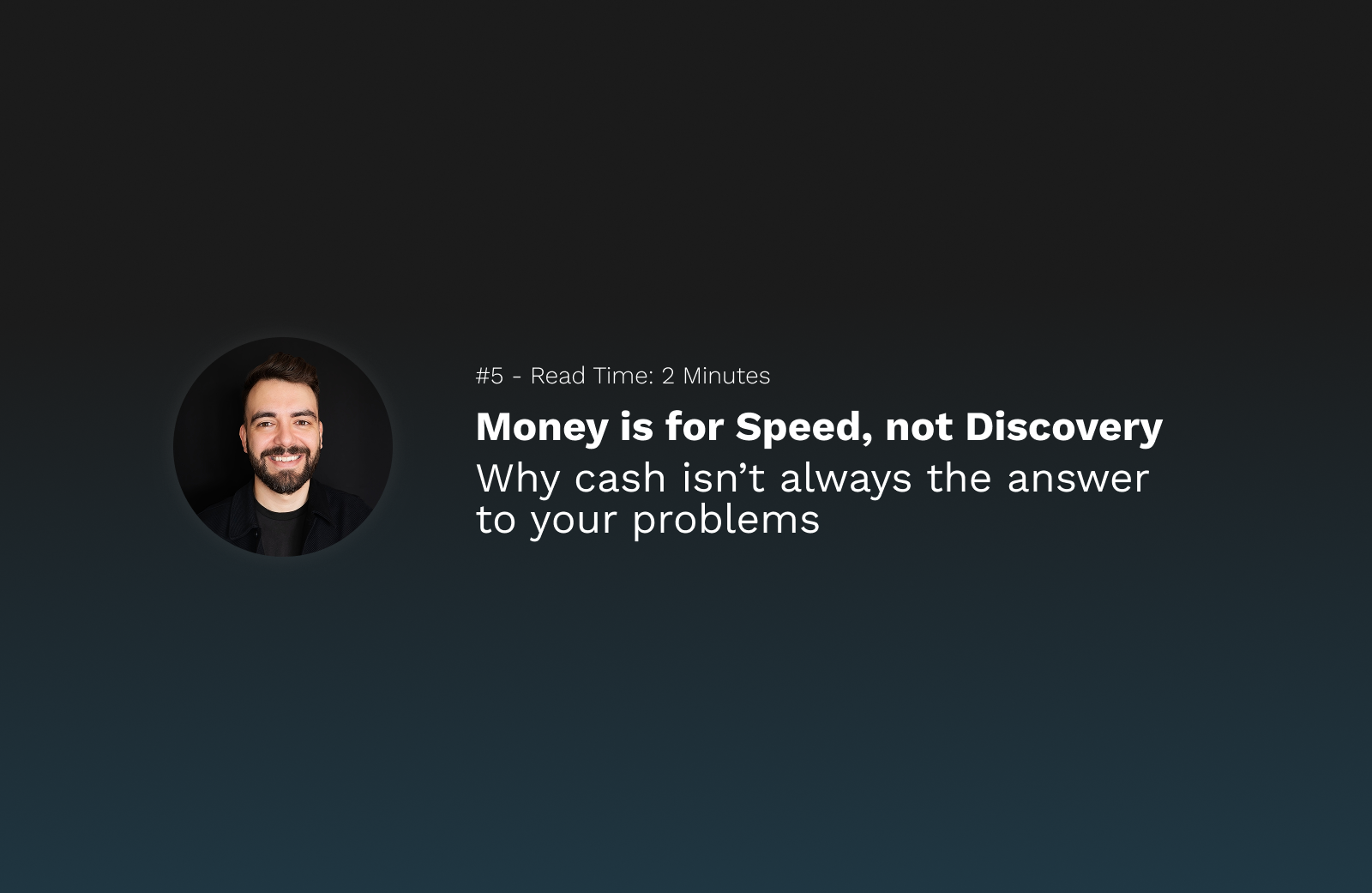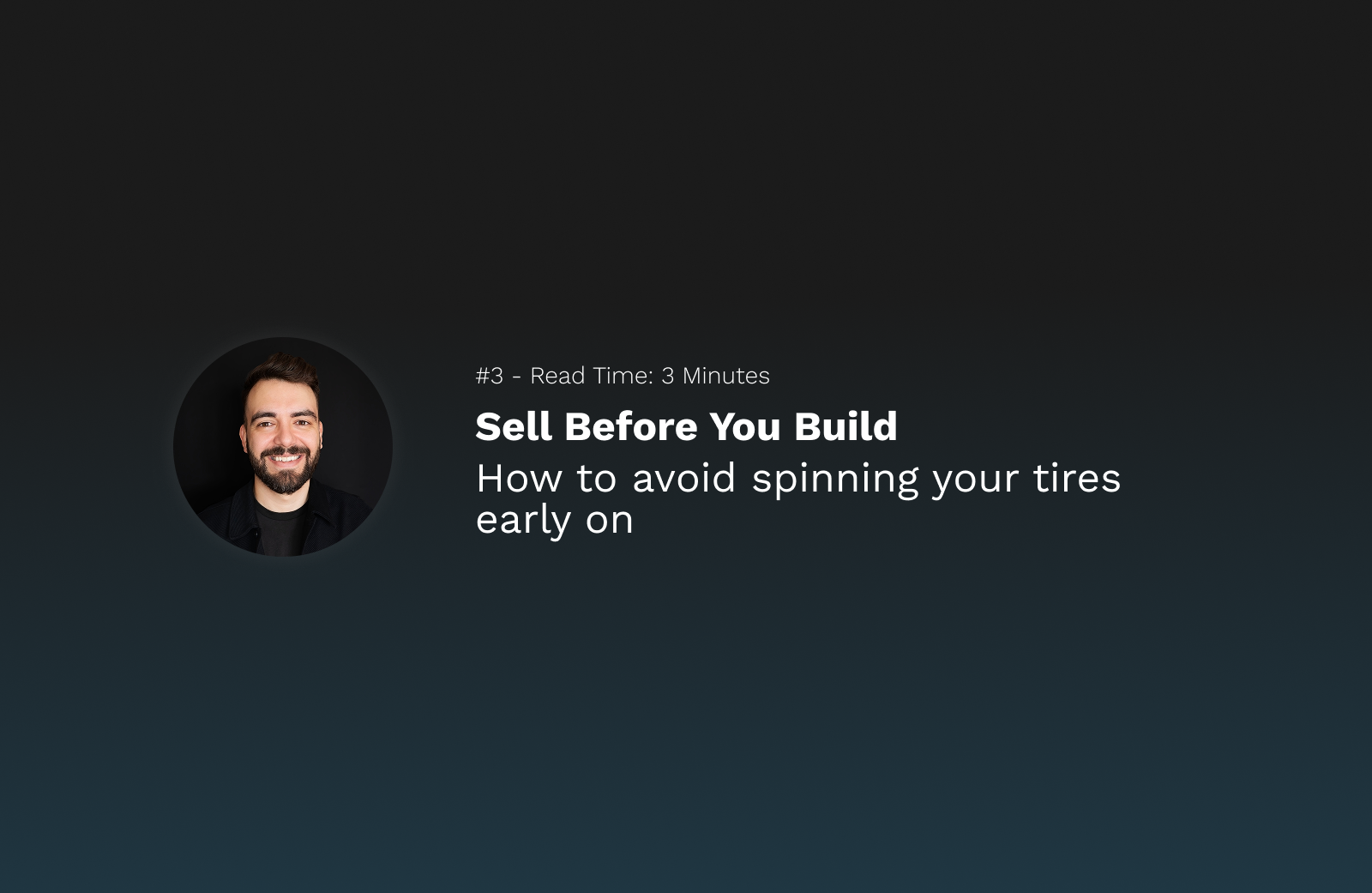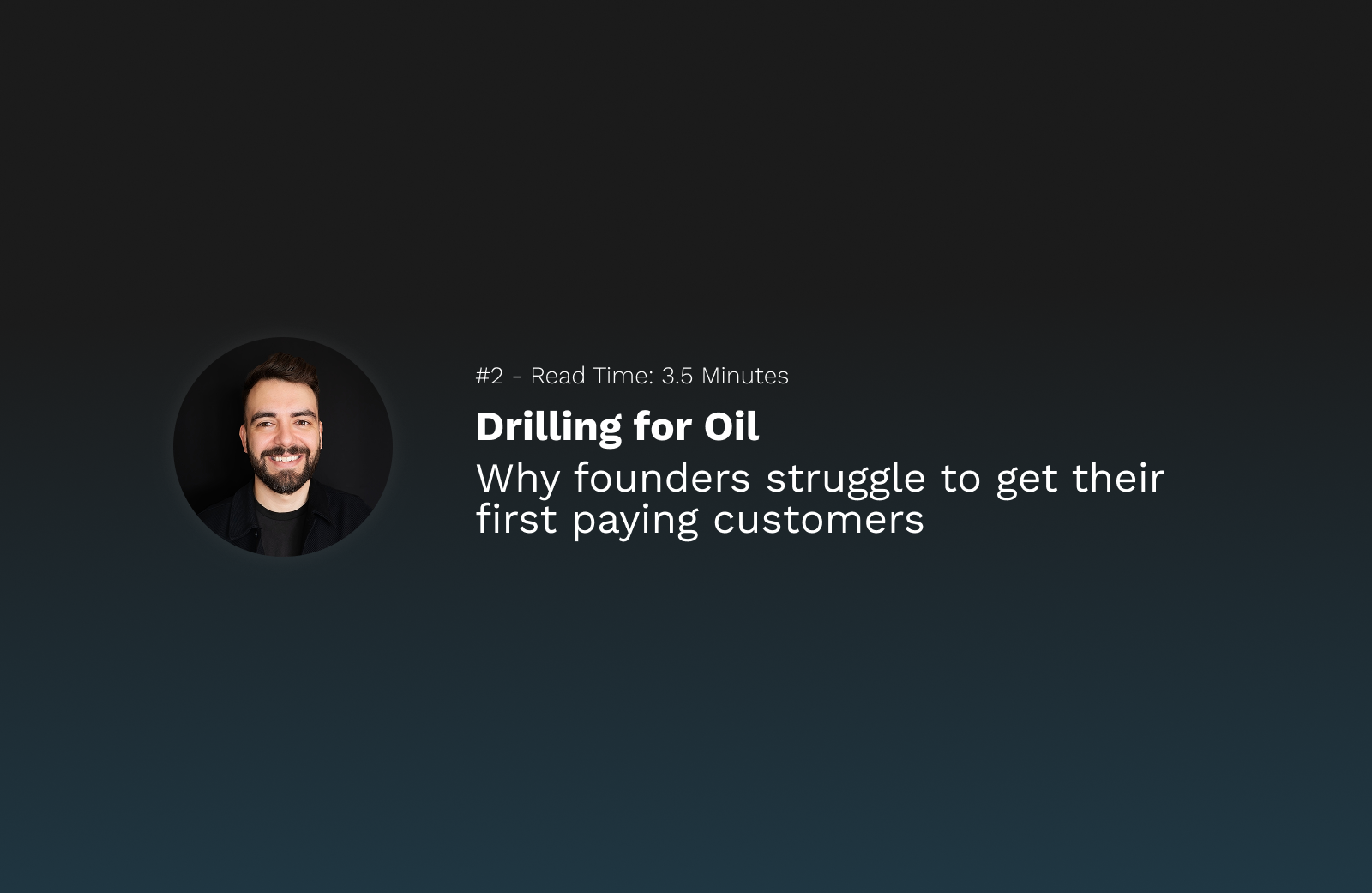You Need a Builder
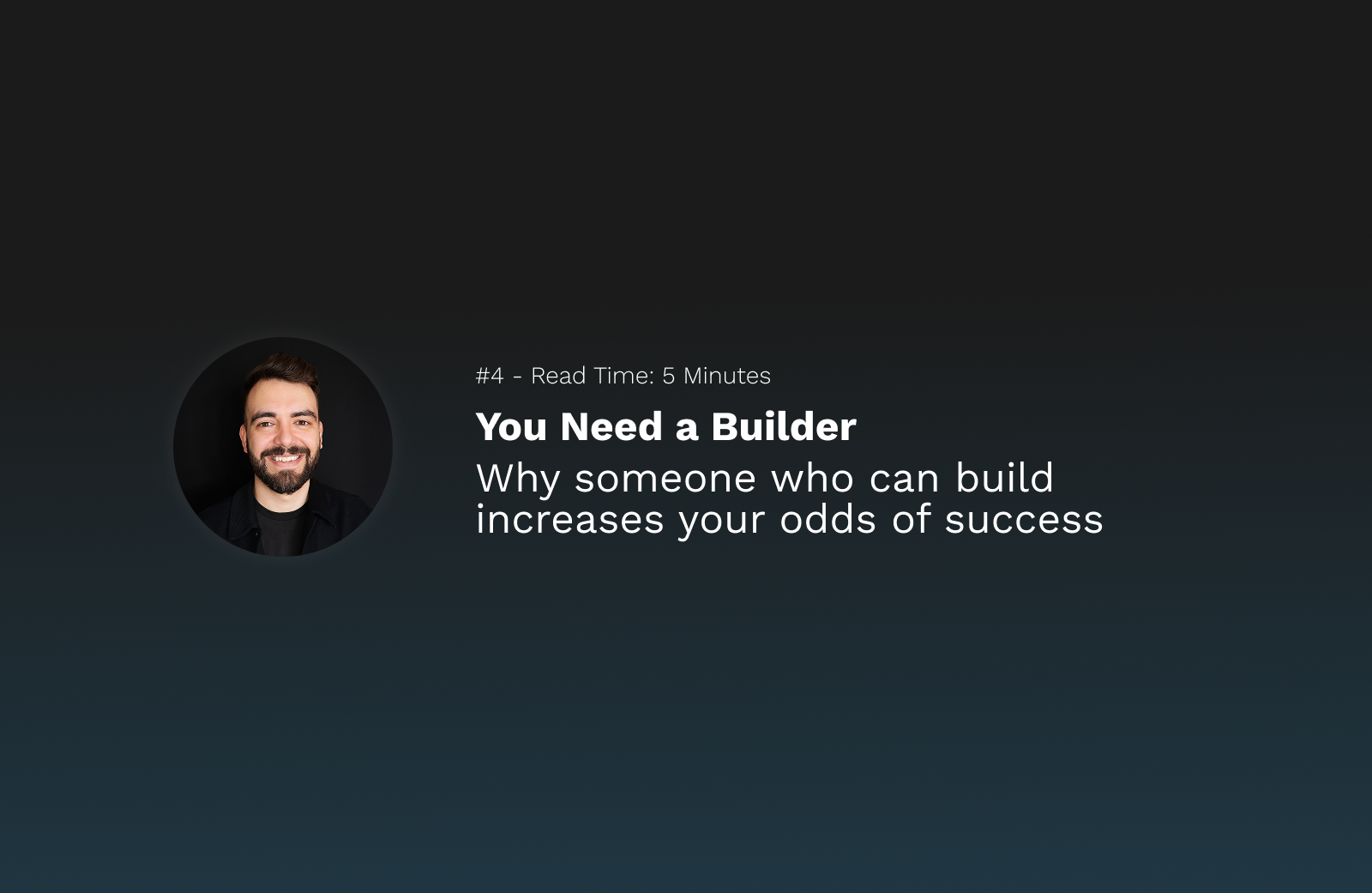
"Do I really need a technical co-founder?"
If you want to drastically increase the odds of your success, yes.
If you aren't already unreasonably successful (e.g. CEO of publicly trade company), yes.
Why?
As a product company, the single biggest line item expense in your first 12-18 months will be the development of your product.
It is unavoidable.
And even if you sell your product before you build (which you should), the day will come when you need to start building.
The vicious cycle
To build a product that creates values, it needs to do something.
We usually refer to the things a product does as “features”.
The easiest way to know what features are creating value is to look at features your users use on a regular basis.
To do this, you need to have gotten users.
To have gotten users, you need to have built something.
To have built something, you need to have invested time into development.
To invest in development, you need to have paid someone to develop.
To pay someone to develop, you need to have cash.
To have cash, you need to have raised capital.
To raise capital, you need to have traction.
To have traction you need to have gotten users.
And on and on the cycle will repeat.
You are caught in a death spiral.
Technical Co-Founders
The answer?
Find someone who will build for free (or in reality, for the promise of future returns - i.e. equity).
Not just anyone - the right someone.
What makes a great technical co-founder?
The characteristics I would consider when finding a technical co-founder, in order of importance, are:
- They are passionate about solving the specific problem you are trying to solve and share your vision for the world you want to create
- They learn quickly
- They are not afraid to break things or ship quickly
- They are willing to leverage modern development tools (e.g., Cursor, etc.)
- They understand that they are building for humans, not robots (you’d be surprised how uncommon this is)
- They want equity, not salary.
- They have enough experience that they don’t need to be supervised
- They aren’t so experienced that they are stuck in theory (this tends to happen the farther/longer they are away from a terminal)
Note, this list is not exhaustive, but is a solid starting point.
#1. They are passionate
While the job market for software developers is in the proverbial toilet (relative to 2-3 years ago), most developers are aware that their skills are valuable.
The biggest risk you have with a technical co-founder is fighting for their attention.
They like the tinkering part of the job.
They will, as a rule, tinker indefinitely.
If they don’t care about what you’re doing, they will become distracted with something else. Something they do care about.
Make sure they care about what you’re doing.
The second biggest risk is fighting the urge to return to a stable pay cheque with less responsibility.
Passion is also the defense for that.
#2. They learn quickly
This should be self-evident.
All founders will need to learn something along the way.
You can’t afford to take your time when it comes to learning new things.
You are building the plane while it’s in the air.
#3. They are not afraid to break things or ship quickly
If they are traditionally trained, they have had years of fear beat into their heads.
Their entire education has been around avoiding negative outcomes.
Finding all of the permutations and eliminating the possibilities of errors.
Some deprogramming may be required.
If you aren’t embarrassed by what you’re shipping, you’re probably shipping too slow.
#4. They are willing to leverage modern tools
Depending on your exposure to AI tools, this may seem like a strange requirement.
Yes, there are developers in the start-up world who have not adopted AI into their workflow.
I would argue MOST developers have not.
If they aren’t able to figure out how these tools can increase their output, they will be a weight to be pulled along.
#5. They understand they are building for humans
I cannot understate how rare this quality is.
There is something about the act of writing code in a terminal that separates you from the user.
This gap increases the larger the code base becomes.
In the minds of the developers, they have a list of tickets and boxes to check.
The success of their role becomes having built a thing - not having built a thing that anyone wants to use.
The best technical co-founders are able to hold the end user in their minds when making decisions.
They care less about security and scalability in the early days and care more about how it “feels”.
I don’t have a good way to identify this in developers without having worked with them already.
But you can tell. The few that I know complain about user experience constantly.
#6. They want equity.
I may split the crowd on this belief, but I think you as a founder should want your technical co-founder on equal footing.
They should want a stake over cash, because there are far more lucrative ways for someone with their skillset to get cash.
You want them to stick around.
You want them to be bought in.
They can be flight risks if not.
(Again, passion also helps).
#7 and #8. They have the right amount of experience.
There is a goldilocks zone of non-early stage start-up experience.
Too much and you have someone who is afraid to build anything fast.
Too little and you have someone who can’t build anything fast (because they’re watching YouTube tutorials).
Institutional development experience is not as helpful for early stage product development.
It can be detrimental in some cases.
If they haven’t been a part of a project from the beginning and made meaningful product decisions, there will be a learning curve.
It’s not a deal breaker in any case - if they learn fast, most can cover the gap (otherwise, no one would have any experience with this).
It’s just a risk to consider.
Can I just build alone?
Yes, in theory.
But it’s miserable.
Early stage product development is equal parts sales and development.
If you’ve ever tried to program between sales calls, you’ll know the mental strain it has on a person.
You’ll be forced to block your time.
But sales is an every day activity.
If you take two weeks off to build, your momentum slows.
It’s a lot easier to keep moving forward when you have someone on equal footing, willing to row with you.
Can I just hire developers?
Yes, in theory.
But it’s riskier.
First, you need to be able to manage them and tell them what to do.
If you’re not a technical person, your ability to do this is nil.
Ask any developer if they actually enjoy being managed by a “sales person”.
They will politely say no.
Second, there will be slumps in your start-up’s journey.
Nearly all of the start-ups I’ve worked with or worked for have inevitably scaled back operations throughout the “messy middle”.
If you have to dish out cash to move product forward, scaling down usually means shutting down.
If you have a technical co-founder, you can usually keep the lights on long enough to pivot and regain your footing.
2 months of runway without a technical co-founder is a lot more stressful.
But what about AI?
In its current state, AI is not a sufficient technical co-founder.
Yes, it is powerful.
Yes, it will 10X-100X the output of a software developer (during the prototyping and MVP stages).
Yes, it requires babysitting.
The advent of the crossbow allowed anyone to shoot an arrow with the strength of a trained archer.
Yet, at war, I’d rather the crossbow be held by someone who knows how to shoot.
Until next time, J

